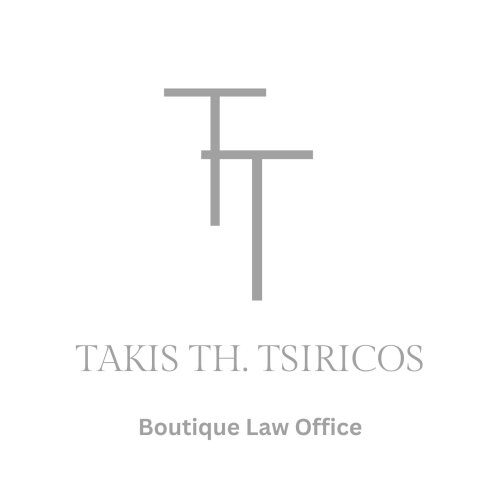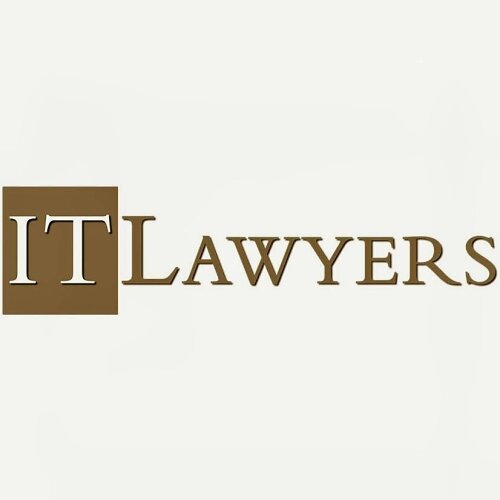Best Information Technology Lawyers in Athens
Share your needs with us, get contacted by law firms.
Free. Takes 2 min.
List of the best lawyers in Athens, Greece
About Information Technology Law in Athens, Greece
Information Technology (IT) law in Athens, Greece governs the legal aspects of using, accessing, and protecting digital information. It encompasses a wide range of legal issues, including privacy, cybersecurity, intellectual property, data protection, and e-commerce. Understanding the local laws and regulations related to IT is crucial for individuals, businesses, and organizations operating in Athens.
Why You May Need a Lawyer
Seeking legal assistance in the field of Information Technology in Athens, Greece is essential in various situations. Some common scenarios where legal help may be required include:
- Handling data breaches or cyberattacks
- Negotiating and drafting IT-related contracts or agreements
- Ensuring compliance with data protection and privacy regulations
- Protecting intellectual property rights
- Resolving disputes related to e-commerce transactions
Local Laws Overview
Here are some key aspects of local laws that are particularly relevant to Information Technology in Athens, Greece:
- Data Protection: The General Data Protection Regulation (GDPR) has been adopted in Greece, which establishes rules for the collection, processing, and storage of personal data.
- Cybersecurity: Greece has implemented laws and regulations aimed at protecting computer systems and networks from attacks and unauthorized access.
- Intellectual Property: Copyright laws, patents, and trademarks are important in the IT sector to protect software, digital content, and inventions.
- E-Commerce: Regulations govern online transactions, electronic contracts, consumer rights, and electronic signatures.
- Privacy: Laws dictate how personal information should be collected, used, and shared by organizations and individuals.
Frequently Asked Questions
1. What are the consequences of a data breach in Athens, Greece?
In Athens, a data breach can lead to severe penalties, including financial sanctions, reputational damage, and potential legal actions from affected individuals.
2. How can I protect my intellectual property rights in the IT sector?
To protect your intellectual property rights, such as software, consider registering copyrights and patents. Additionally, including clear terms and conditions in contracts can help preserve your rights.
3. Are there any specific regulations for e-commerce in Athens, Greece?
Athens follows the European Union's regulations on e-commerce, including rules regarding online transactions, consumer rights, and electronic contracts.
4. What are the requirements for GDPR compliance in Athens?
In Athens, businesses and organizations must adhere to the GDPR's requirements, such as obtaining consent for data processing, implementing security measures, and appointing a Data Protection Officer (DPO) in certain cases.
5. What should I do if I suspect a cybersecurity breach?
If you suspect a cybersecurity breach, it is crucial to take immediate action. Contact a specialized IT lawyer who can guide you through the necessary steps to mitigate the breach, preserve evidence, and liaise with relevant authorities.
Additional Resources
- Ministry of Digital Governance: https://www.ministry-dg.gov.gr/
- Privacy Authority of Greece: https://www.dpa.gr/
- Hellenic Copyright Organization: https://www.opi.gr/
Next Steps
If you require legal assistance in the field of Information Technology in Athens, Greece, it is advisable to:
- Identify your specific legal issue or concern in the IT sector.
- Research and consider consulting reputable IT lawyers or law firms in Athens with expertise in your area of concern.
- Arrange a consultation or meeting to discuss your situation and receive professional advice.
- Provide necessary documentation or evidence to support your case.
- Collaborate closely with your lawyer to understand legal options, review contracts, and develop a strategic plan.
- Follow their guidance and take appropriate actions to protect your rights and interests.
Lawzana helps you find the best lawyers and law firms in Athens through a curated and pre-screened list of qualified legal professionals. Our platform offers rankings and detailed profiles of attorneys and law firms, allowing you to compare based on practice areas, including Information Technology, experience, and client feedback.
Each profile includes a description of the firm's areas of practice, client reviews, team members and partners, year of establishment, spoken languages, office locations, contact information, social media presence, and any published articles or resources. Most firms on our platform speak English and are experienced in both local and international legal matters.
Get a quote from top-rated law firms in Athens, Greece — quickly, securely, and without unnecessary hassle.
Disclaimer:
The information provided on this page is for general informational purposes only and does not constitute legal advice. While we strive to ensure the accuracy and relevance of the content, legal information may change over time, and interpretations of the law can vary. You should always consult with a qualified legal professional for advice specific to your situation.
We disclaim all liability for actions taken or not taken based on the content of this page. If you believe any information is incorrect or outdated, please contact us, and we will review and update it where appropriate.











